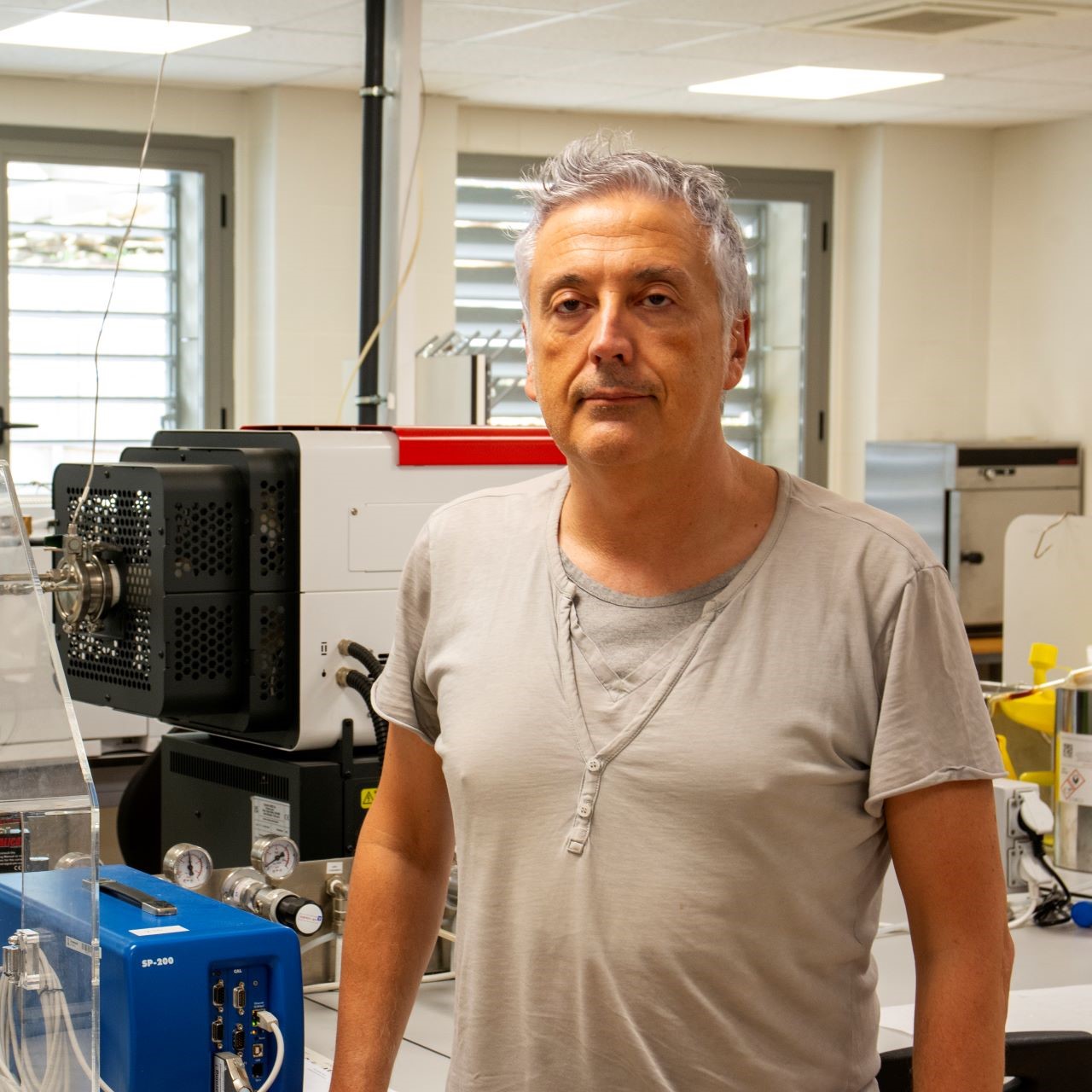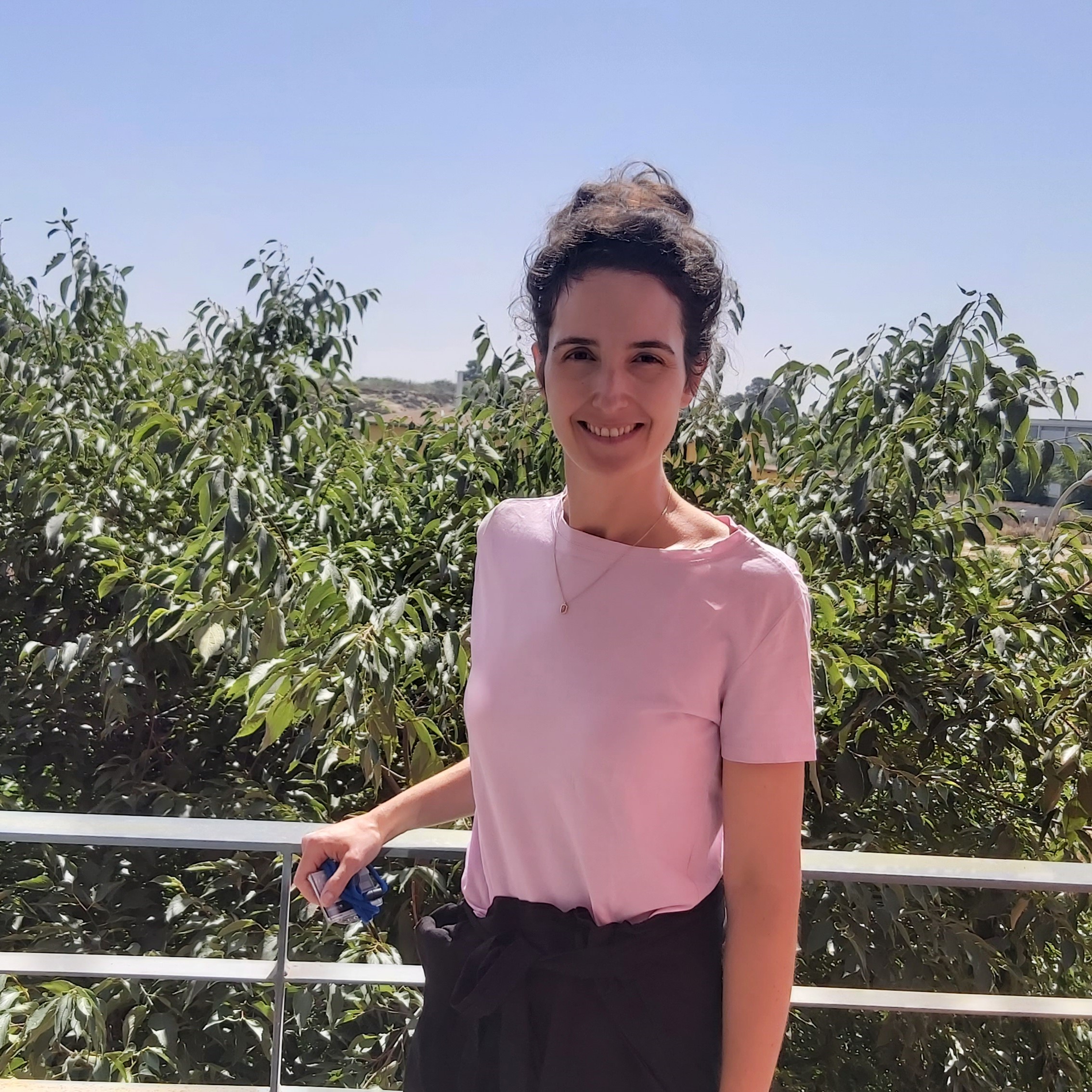
Why did you decide to go into research?
I had the opportunity to do a research stay in Nancy (France), as part of the Erasmus programme for my final degree project, and there it became clear to me that this was what I liked, although I also imagined that it would be a long-distance race.
Did you always have a clear idea of what you wanted to do?
No, of course not. When I finished my degree, I almost got a job in a major chemical company, but in the end, I was not hired because of my poor English (I studied French at school and in secondary school... what can you do!). But, as it is known, a door closes and a window opens. So, I opted to do my PhD...
How long have you been linked to the I3A and what would you highlight about the Institute?
I have been at the I3A since I arrived at the University of Zaragoza for a postdoctoral stay in Professor Jesús Arauzo's group in 2004, almost twenty years now. I would highlight the quality of the research carried out at the Institute in different areas of technology. There are really very competent researchers.
In your research group, what are your most important lines or areas of work?
In the Thermochemical Processes Group (GPT) we are focused on, among other topics and lines of action, producing advanced carbonaceous materials from waste biomass. These materials can be used for a wide variety of applications, such as organic soil amendment, adsorbents to retain pollutants in the aqueous and gas phase, heterogeneous catalyst supports for CO2 conversion reactions and other processes in the field of alternative energy sources to those of fossil origin, and active materials for electrodes in new generation electrochemical energy storage devices (such as, for example, sodium ion batteries or zinc ion supercapacitors).
Do you have any ongoing projects that you would like to highlight?
One that we are going to start in January with funding from the European Union, focused on the development of sustainable materials for alternative electrochemical energy storage systems (eNargiZinc). This is a doctoral network within the framework of the Marie Skłodowska-Curie actions, in which renowned research groups and companies from the sectors involved will participate.
What do you enjoy most about your profession? And what do you enjoy least?
What I value most is that I like my job and that can be considered an absolute privilege. What I value the least is that you always have the feeling that you could have done more.
What would you say to anyone thinking of going into research?
If they are really attracted by it, they should work, fight, persist. In the end, no matter how complex the circumstances (are), you will always get the rewards if you don't give up. But, at the same time, I would also tell them that all this effort should not compromise their personal growth or jeopardise their social and emotional relationships.
CLOSE UP…
What did you study?: Industrial Engineering at the Universitat Politécnica de Catalunya.
A goal: Writing a novel.
Hobbies: I love cinema and theatre, where I have some experience at amateur level. And I have a passion for sport in general.
A book: "One Hundred Years of Solitude" by Gabriel García Márquez.
A film: "The Thin Red Line" by Terrence Malick.
Favourite music group: Radiohead.
A trip: Every trip gives you something, for me it is impossible to single out one in particular.
How would you define yourself: A persevering guy, quite sensitive, with concerns and a good dose of sense of humour.
